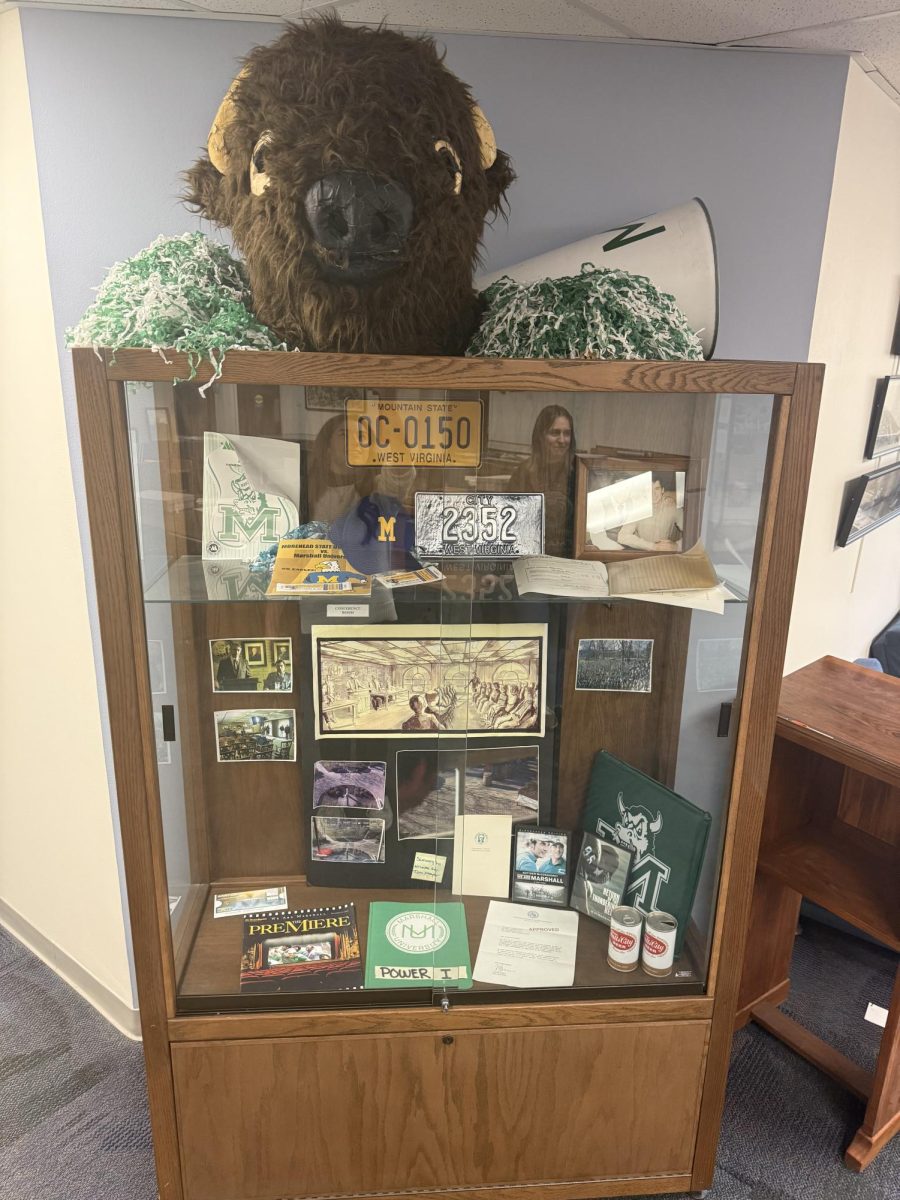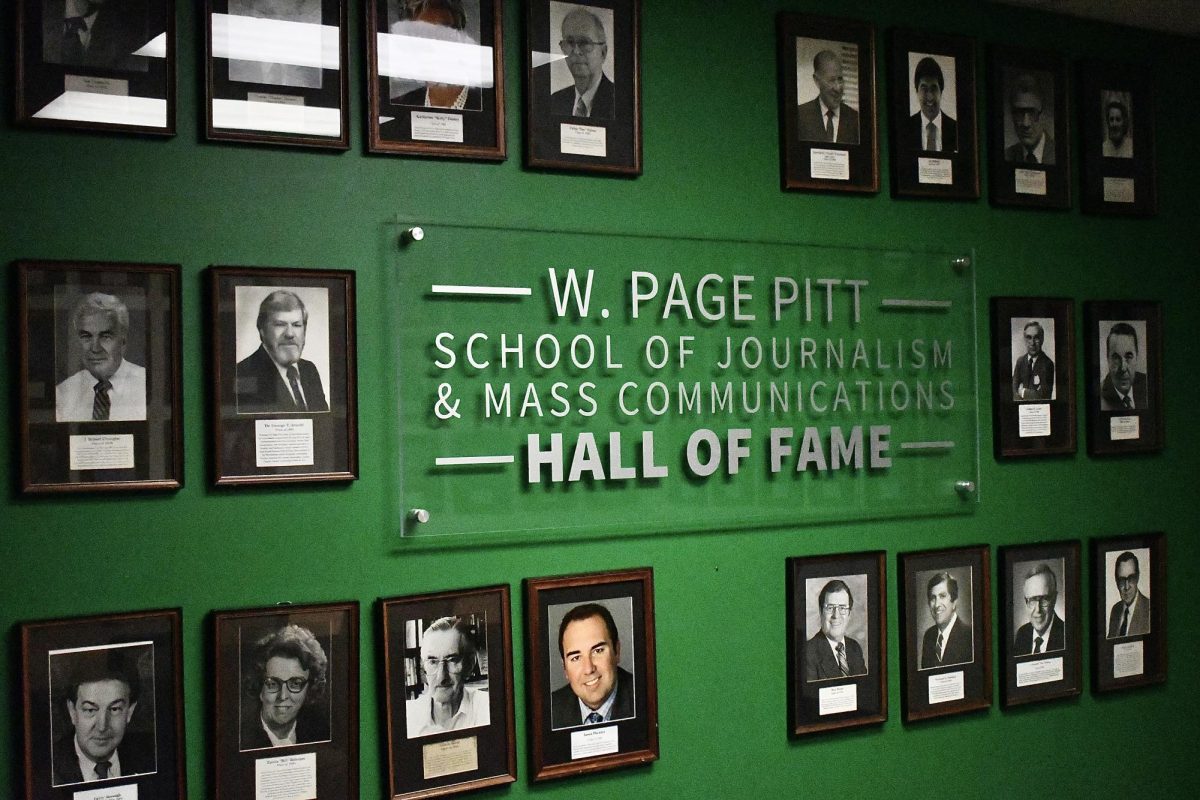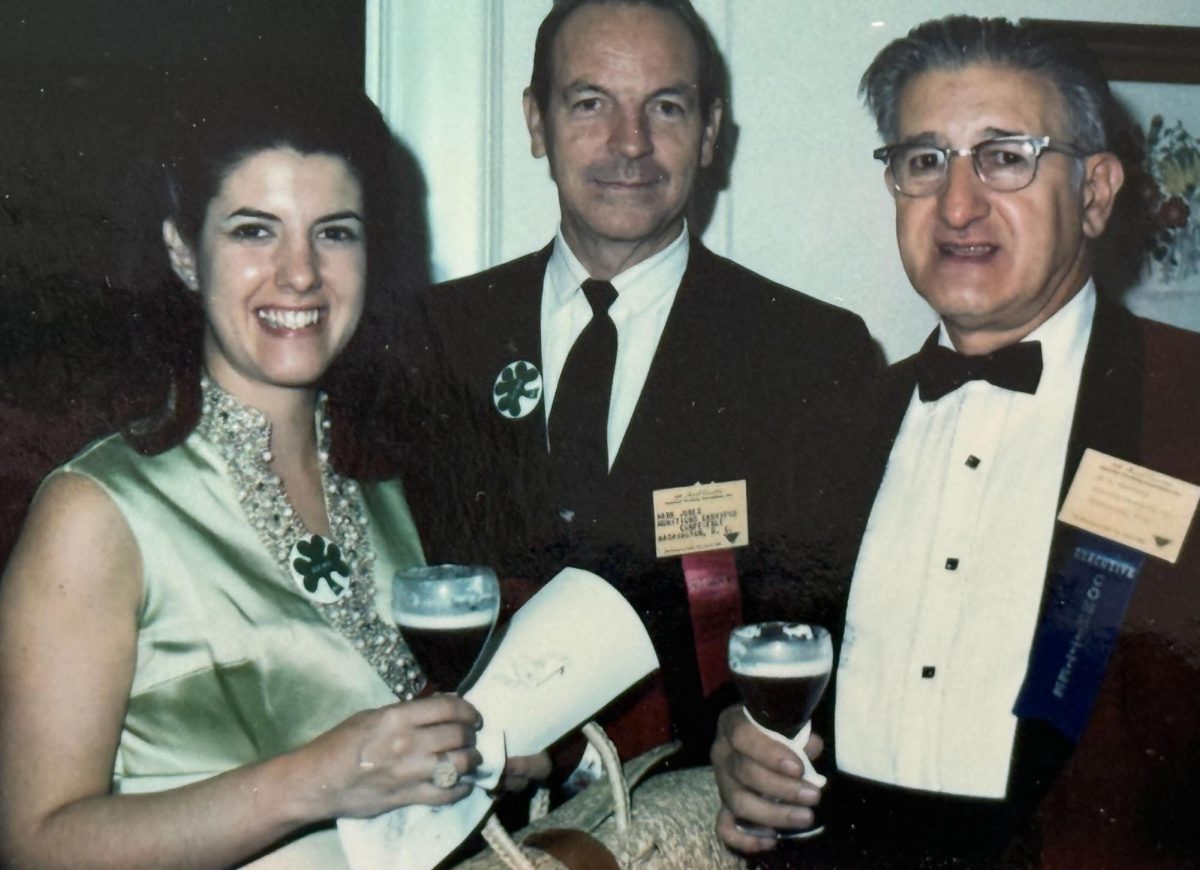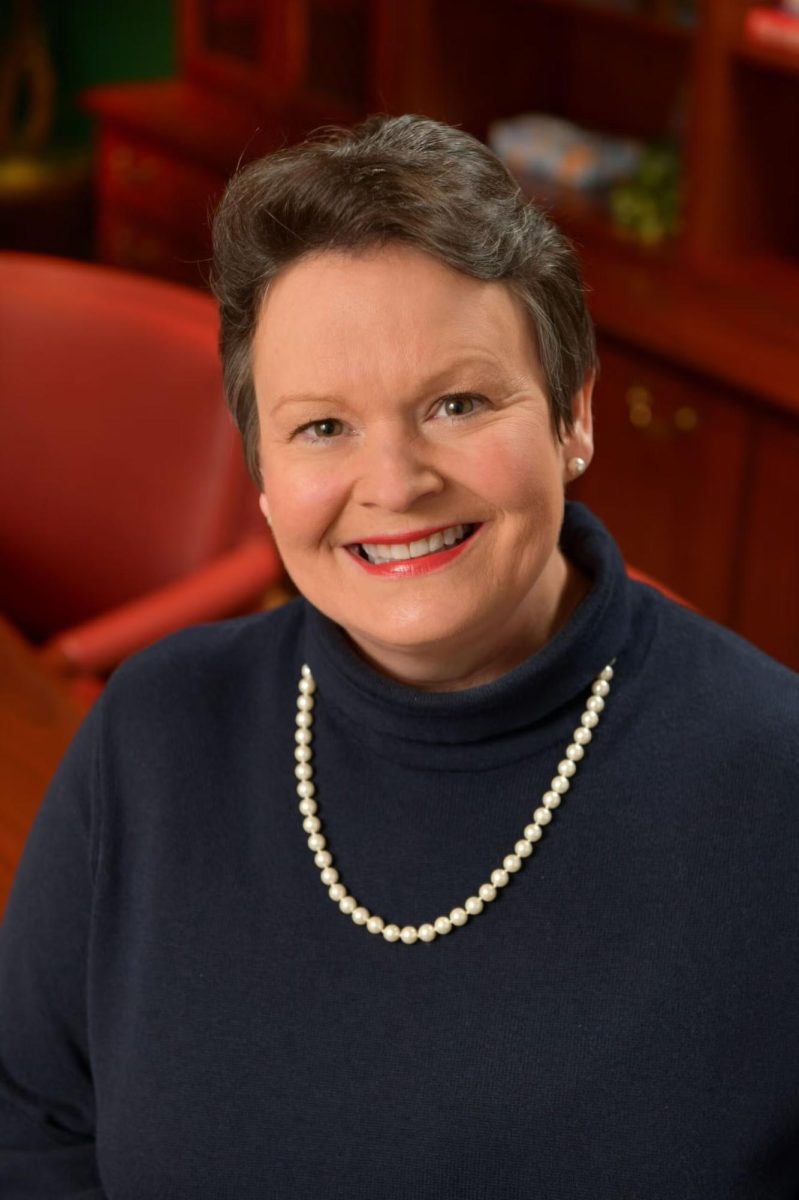Bravery binded the stories of an African American World War II veteran, United States president and district judge, an author and judge said Thursday, Feb. 22, on Marshall’s campus.
“Courage is a story that deserves to be told with all of its pathos, its brutality and its redemption of the American system of justice,” said Judge Richard Gergel at the latest Amicus Curiae lecture.
Gergel currently serves as a district judge at the J. Waties Waring Federal Judicial Center in South Carolina. His 2019 book, “Unexampled Courage: The Blinding of Sgt. Isaac Woodard and the Awakening of the President Harry S. Truman and Judge J. Waties Waring,” was the topic of discussion at the lecture event.
The presentation focused on the beating and blinding of African American veteran Sgt. Isaac Woodard. In 1946, after having a confrontation with his bus driver, on the day he was honorably discharged, Woodard was beaten and jailed, which ultimately led to his complete blindness.
Woodard was still wearing his United States army uniform when the incident occured. This decorated fact, however, meant little to the current society, Gergel said.
“It didn’t matter that he had sergeant stripes on his sleeve and battlefield awards on his chest,” he said. “What mattered was he was a black man, and he spoke up to a white man.”
Gergel also said following his arrest, Woodard stood out, speaking and making appearances across the country despite his disability.
“Most people who were victims of racial violence had funerals, not speaking events,” he said.
However, many Americans are completely unaware of Woodard’s story, according to Gergel. In fact, the town of Batesburg, South Carolina, did not overturn Woodard’s arrest until nearly 72 years after the fact.
“On June 1, 2018, the town attorney filed a motion to reopen the case of the town of Batesburg v. Isaac Woodard and overturned his unjust criminal conviction,” Gergel said. “In March 2020, the town of Batesburg dedicated a historic marker candidly telling the story of the blinding of Isaac Woodard.”
Gergel argued Woodard’s case paved the way for 33rd United States President Harry Truman to courageously integrate the United States armed forces in 1948. After hearing what happened to Woodard, the president acted on the matter at hand.
Gergel quoted a note written by Truman to a friend who warned him that siding with equality could cost him votes.
“If you knew what I knew, you would not have the views you have,” Truman said, including the story of Woodard in the letter. “If I lose the election on this issue, it will have been for a good cause.”
Despite the warning from his friend, Truman stuck with his advocacy and won the 1948 election. Truman’s bravery, Gergel said, was monumental to the movement.
“America, at the time, had no multiracial organization; it didn’t exist,” Gergel said. “And here was Harry Truman in one full swoop, ordering the desegregation of the most respected organization in America.”
Gergel also highlighted the work of Judge Julius Waring, a district judge in the state of South Carolina in which his courthouse is named. Waring played an active role in early civil rights cases, including Briggs v. Elliott.
Briggs v. Elliott was a 1952 case concerning the segregation of schools in South Carolina and would later be included in the case of Brown v. Board of Education, which would label the segregation of schools unconstitutional in 1954. Waring pushed for segregation to be abolished in these cases.
Gergel said Waring constantly battled with death threats and violence in the midst of his controversial rulings. However, they never stopped him from staying true to his values.
“Time Magazine described him as the man they loved to hate, but also noted that Judge Waring was proving to be a person of cool courage,” Gergel said.
Michael Borsuk, business and political science student, agreed that Waring served as an influential player in the early Civil Rights Movement. He also said the cases marked an important milestone in our history books.
“I think that it shows really how far we’ve come in American history– in creating the promise of the Constitution and the promise of law in general– which is equal justice for all,” Borsuk said.
Gergel’s wife, Belinda Gergel, said the history of civil rights is similar to a redemptive story. As a retired history professor, she said learning about the men behind the decisions has been both inspiring and fascinating.
“Good things sometimes come out of very bad things,” she said. “I loved seeing how unintended consequences could lead to some very big events.”
The heroic acts of Woodard, Truman and Waring made an uprising in civil rights activism and heightened inspiration to Americans today. Gergel believes in the significance of sharing their stories, especially when they have been undershared, even if that means leaving his office.
“It’s the highest calling of our system of justice,” Gergel said. “It would be easier just to sit in my courthouse and do my work, but I feel like this is a story that needs to be told.”




















